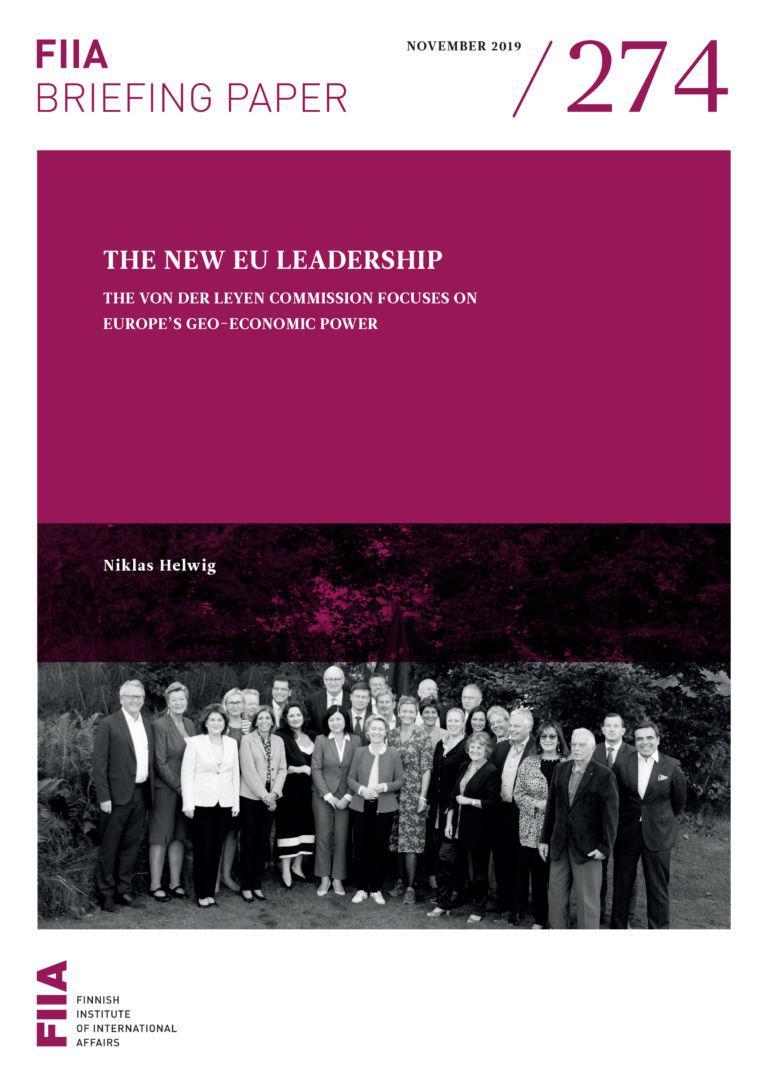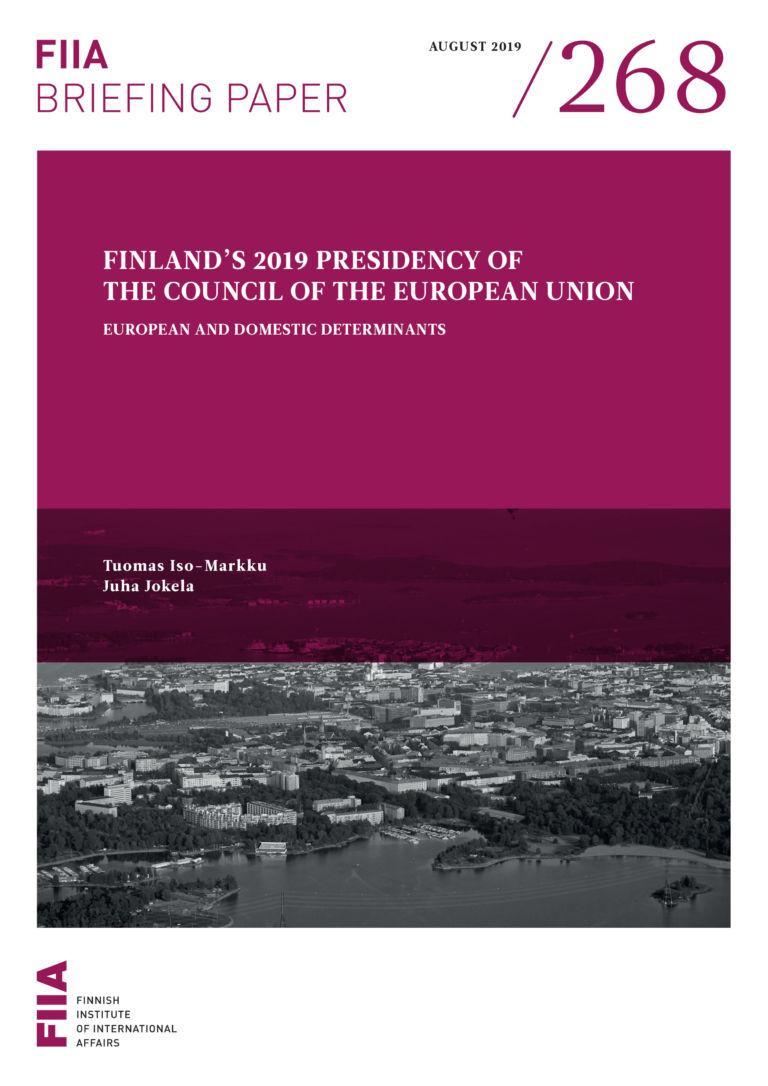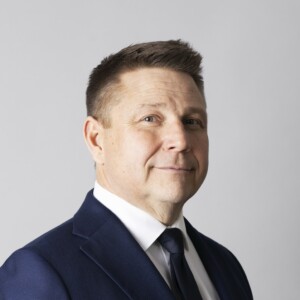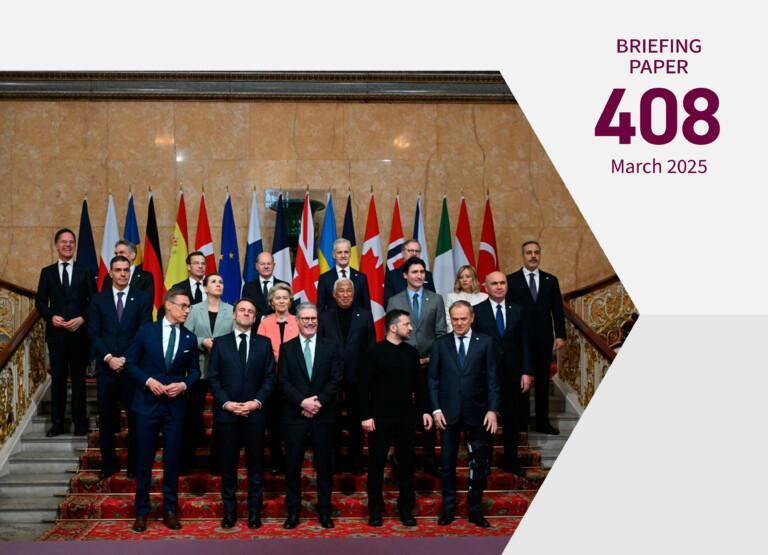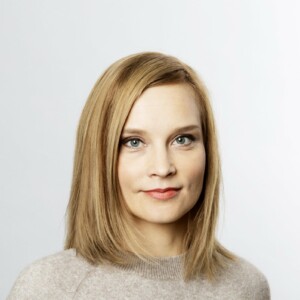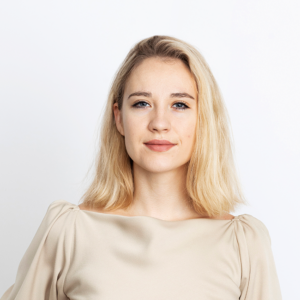
- Ursula von der Leyen has vowed to make the European Commission a “geopolitical” player under her presidency.
- She announced a Commission that would be strong on the economic aspects of the EU’s external action. This more aptly labelled “geo-economic” focus of her presidency comes at a time of increased global competition in the economic sphere and poor performance in respect of the EU’s traditional diplomacy.
- The main goal of earlier EU reforms, to integrate the economic and political pillars of the EU’s external action, is fading. Instead, the European Commission and the Council now plan to prioritize their particular strengths.
- The new emphasis on the EU’s geo-economic power promises a stronger global position for Europe, while risking a decline in the coherence of external action.
- The geo-economic emphasis is more likely to pay off if the EU leadership coordinates closely on a limited number of priority areas, such as China, Iran and the Middle East, as well as the Western Balkans.
Introduction
When Ursula von der Leyen presented her team in September 2019, she underlined that under her presidency the European Commission would be a “geopolitical” player. In her letters to the new class of Commissioners, she declared that the “European Union needs to be more strategic, more assertive and more united in its approach to external relations”.[1]
Looking at the international challenges of recent years, one can hardly dispute the reasoning behind von der Leyen’s thinking. The US has evolved from the EU’s closest ally into a difficult partner. Washington’s ‘maximum pressure’ campaign against Iran exemplifies how the US pursues its interests with little attention to European partners’ concerns. Despite the EU’s will to engage with Teheran, European businesses were forced to comply with US sanctions on Iran. China has evolved from an opportunity into a challenge for the EU. Beijing’s Belt and Road Initiative reveals global ambitions and reaches into the EU’s heartland. Even now, some EU member states are hesitant to stand up to China given its heavy investments in European infrastructure.
This Briefing Paper analyses how the new EU leadership plans to adapt to these international challenges. It concludes that von der Leyen’s response is “geo-economic” rather than “geopolitical” in nature.[2] Given the European Commission’s vast competencies on economic matters, she has streamlined its structures to make the best use of areas where the EU’s powers are strongest and most likely to make a difference: fostering innovation, consolidating the single market, and protecting and promoting European trade and economic interests. Supporting the Common Foreign and Security Policy (CFSP) is a lesser priority in the new Commission. The change comes at a time when the political and security pillar of the EU’s external action has struggled to make an impact.
While the Commission focuses on the EU’s economic power, the attention of the EU High Representative Josep Borrell will shift more squarely to traditional foreign policy and diplomacy. As Vice-President of the Commission, he will have a subsidiary role to von der Leyen in coordinating its external relations. Instead, he announced that he would elevate the policy work with member states and drive a more ambitious diplomatic agenda with a focus on the EU’s neighbourhood.
The Commission’s geo-economic focus suggests a return to the two-pillar approach of EU external action, with the Commission focusing on its economic strength, while the Council pushes the EU’s political profile. The two-pillar approach could represent a turn away from the previous priority to implement the Lisbon Treaty and link the different dimensions of the EU’s external action. Whether the new division of labour will yield better results will depend on the coordination in the upper echelons in Brussels on specific issues. Commission President von der Leyen, European Council President Charles Michel and High Representative Borrell will together have to ensure that member states’ policies and EU instruments are aligned.
The challenge of ‘one voice’
The two-pillar approach – a focus by each EU external action actor on their particular strength – marks a sharp turn away from the EU’s external strategy in the last decade. Since the 2009 Lisbon Treaty, the leitmotiv of reforms was the coherence of EU external relations. The institutional innovations that the member states pushed, such as the European External Action Service (EEAS), were designed to bring the economic and foreign policy dimensions of the EU’s external relations closer together.[3] The High Representative should have been the external face of the EU. The post not only manages the CFSP and the foreign policy work of the member states in the Council, but also coordinates the external relations and actions of the European Commission.
The ‘one voice’ approach had its difficulties from the start. Commission President José Manuel Barroso dwarfed the first EU foreign policy chief Baroness Catherine Ashton, with the baroness struggling to carve out a role for herself in the notoriously inflexible Commission bureaucracy.
Partly as a reaction to this, Barroso’s successor Jean-Claude Juncker made a point of delegating large parts of the Commission’s external relations to High Representative Federica Mogherini. She was able to guide the work of a large group of Commissioners, which included the portfolios for neighbourhood and enlargement, development cooperation, crisis management, as well as trade. In addition, she received the go-ahead to tap into the resources of other portfolios including climate action and energy, transport, as well as migration and home affairs. She took the Commission job so seriously that foreign ministers in the Council started complaining that she was not spending enough time caring for their needs. Under this arrangement, the work of the High Representative was always a balancing act between the post’s different ‘hats’ in the Commission and the Council.
President Juncker also changed the Commission structures and agenda, abolishing the purely technocratic approach and encouraging his team to be more political. Commissioners such as Cecilia Malmström for trade or Pierre Moscovici for economic and financial affairs had an important representational role in fora like the WTO and G20. The Commission pursued an ambitious trade agenda, finalizing free trade agreements with Canada, Japan, Mexico, Singapore and Vietnam. Juncker’s efforts to ease trade tensions with the US with a visit to the White House in summer 2018, or the anti-trust efforts of Competition Commissioner Margrethe Vestager that led to multibillion-dollar fines for Google, were also signs of this new ambition.
While the economic profile of the Commission was high, the results of Mogherini’s work as EU foreign policy chief were mixed. She was able to finish her predecessor’s work on the Iran nuclear deal and managed to maintain unity on EU sanctions against Russia, despite early criticism of her alleged softness on the eastern flank. She also orchestrated a necessary strategic evaluation of Europe’s global role, which led to a new push to deepen EU defence cooperation.
Most of these efforts have their origin in the first half of her term. Since then, President Donald Trump’s election victory, the UK’s withdrawal process, and growing tensions in the Middle East have strongly affected the conditions under which the EU operates abroad. The EU’s approach to placing its trust in international agreements is facing limits as the case of Iran has shown. The US, China and Russia often want to see EU member states divided rather than united. Turkey’s recent invasion of Kurdish-held areas in north-eastern Syria and the subsequent ceasefire agreement negotiated by Russia and Turkey revealed that the EU has little political influence in an important part of its neighbourhood.
In this challenging environment, the different tasks of the High Representative – to find common policies among member states as well as to coordinate the external relations of the European Commission – are generally seen as too much for one person to handle. The new EU foreign policy chief Borrell could risk appearing as if he were “juggling hats while someone is throwing balls at him”.[4]
Instead, the structure of the new EU leadership brings to mind a different image: EU actors strap their hats on tightly, in order not to lose them in the rollercoaster ride of global competition. In reality, this means a clearer separation of work between the Commission and the Council on EU external action.
A geo-economic European Commission
Von der Leyen wants to take the Commission’s international economic profile to the next level. The structure of her new leadership reflects this priority. She introduced three “Executive Vice-Presidents”, representing the three key political groups of the European Parliament, as a new layer in the Commission hierarchy. In addition to guiding the work of other Commissioners, they have the authority over a directorate-general in the large bureaucracy. This makes them powerful actors in the areas of climate action, digital leadership and the economy.
As the Executive Vice-President for Climate Action, Frans Timmermans (Dutch, Social Democrat) has the job of implementing the European Green Deal. The ambitious goal set by von der Leyen is to increase the emission reduction target to at least 50% by 2030. In addition, Timmermans leads the negotiations with international emitters on more ambitious CO2 targets. Some Central European member states are difficult to persuade and the right CO2-killing measures are hard to pin down. While Timmermans certainly has one of the most difficult tasks in the new Commission, he will also be one of its most powerful players. Not only will he lead the directorate-general for climate, he will also guide the work of the Commissioner for energy. In addition, he will chair the Commission college meetings in von der Leyen’s absence. This gives him much more power than his predecessor, who worked under the Vice-President for the Energy Union.
Margrethe Vestager (Danish, Liberal), as the new Executive Vice-President for the digital age, has an equally strong position. Even in the outgoing Commission, she earned an international reputation as an enforcer of competition rules through her aggressive approach towards US technology giants. Her portfolio now gives her additional powers to shape the EU regulations in the digital economy, including social media standards or policies on artificial intelligence. The extended job profile has the potential to boost Vestager’s international profile and the EU’s role as a major regulator even further.
Valdis Dombrovskis (Latvian, Conservative) will steer the economic, financial and social aspects of the Commission. His vice-presidency will also have an important external role as von der Leyen has tasked him with overseeing the EU’s external economic relations. He will guide the Trade Commissioner’s work. Moreover, he was tasked with strengthening the EU’s resilience against extraterritorial sanctions – such as US sanctions against Iran with effects on European businesses – and ensuring “economic sovereignty”. To support these efforts, von der Leyen surprisingly relocated the unit dealing with the implementation of EU sanctions to Dombrovskis’ banking and finance department.
Lower in the hierarchy, the French Internal Market Commissioner emerges as a powerful player due to his vast competences in the area of the internal market. He will also be responsible for the new directorate for the defence industry and space. The new department bundles the Commission’s growing work on defence and manages the planned 13 billion-euro heavy defence fund. The money is needed to jump-start joint research and development projects and procurement among member states.
The Commission’s international ambitions are also reflected in a new decision-making structure that streamlines its external relations. A new preparatory body – called EXCO, short for external cooperation – prepares the Commission’s college meetings on external aspects. Von der Leyen’s diplomatic advisor and Borrell’s deputy head of cabinet will co-chair the meetings. Von der Leyen’s grip on the external agenda of the Commission will be much tighter compared to her predecessor’s, who relied on the General-Secretariat and his Cabinet to steer the internal policy processes.
The changes in the hierarchy and working methods give von der Leyen, her Executive Vice-Presidents and the Secretariat-General of the Commission unprecedented power to steer the Commission’s geo-economic agenda. Whereas previously, different Commissioners had overlapping competences to implement certain policies, there is now a tangible top-down hierarchy on the major priorities, such as climate change or the digital agenda.
A CFSP with a bold P for Policy
High Representative Josep Borrell will have a smaller role as Vice-President of the Commission compared to his Executive Vice-President colleagues and his predecessor. He continues to chair the group of Commissioners with external relation profiles – now dubbed “Stronger Europe in the World” – and explicitly guides the work of the Commissioners for International Partnerships, Neighbourhood and Enlargement as well as Crisis Management.
The Commission’s heavy external financial instruments also remain in Borrell’s sphere. A new Neighbourhood, Development and International Cooperation Instrument is set to streamline and simplify the financial assistance in the EU’s neighbourhood, in Africa and beyond. When member states agree on the 2021-2027 multi-year budget, the Finnish International Partnerships Commissioner Jutta Urpilainen will implement this close to 90 billion euro heavy instrument under the guidance of High Representative Borrell. In general, the EEAS is in charge to prepare the policy aspects of how external assistance money is spent, while the Commission administrates the funds.
Despite the continuity, Borrell is set to lack influence in the new Commission. He will no longer guide the work of the Trade Commissioner. More importantly, he will not have the same privileges as his Executive Vice-President colleagues that lead their own departments. His predecessor Mogherini did not have direct control over large Commission departments either. However, she had the authority to draw on the resources of other Commissioners. Borrell, by contrast, will be required to establish a close working relationship with Vestager on important topics, such as the development of European defence industries.
Instead of emphasizing his role in the Commission, Borrell aims to focus on the CFSP, which is largely in the hands of the member states in the Council. In his previous job as Spain’s foreign minister, Borrell had been disappointed with the efficiency of the foreign minister meetings. In an interview, he bemoaned that “the Foreign Affairs Council is more a valley of tears than a centre of decision-making”. He was concerned that the response to international crises was not accurate: “we express our condolences and concern ... but no capacity for action comes out of it and we just move on to the next [crisis].”[5]
In his European Parliament hearing in early October, he vowed to try to move beyond the lowest common denominator of member state positions and actively use his right of initiative for the CFSP. If he implements his vision, the foreign ministers can expect to see a change from the chairing style of Mogherini in the Foreign Affairs Council and more discussions on policies and long-term strategies. Borrell also supports the Commission’s proposal to gradually introduce qualified majority voting in the CFSP on sanctions, human rights questions and civilian EU missions. The change would make it more difficult for individual member states to block decisions in these specific fields. However, the necessary consensus among member states on the adoption of the new majority rules is far from certain.
Borrell’s success will also depend on whether he sets the right priorities. In his hearing, he gave an early hint that his main priority could be the EU’s eastern neighbourhood and the Western Balkans. Borrell might have difficulties forging a coherent policy with member states, given the latest disagreements on opening accession talks with Albania and North Macedonia. Borrell also mentioned the need for EU member states to develop a common position in relation to major international players: the US, China and Russia. He wants to be less technocratic and more strategic in the engagement with these countries, even if it means having difficult debates in the Council. In line with more realist thinking on the EU’s global role, he argued that “the EU needs to speak the language of power”.
His predecessors Ashton and Mogherini had little foreign policy experience when taking on the job. Borrell has a long career in European and international politics to draw on.[6] He was European Parliament President between 2004 and 2007 and has been Spanish foreign minister since 2018. These experiences do not make him a second Javier Solana who, as the first High Representative for the CFSP, had worked for three years as foreign minister and four years as NATO Secretary-General. However, Borrell has a large network across and outside Europe to tap into.
His intellectual merits also speak for him. With a doctorate in economics and as former president of the European University Institute, he certainly has the capacity to drive the policy debate in the Council. However, whether his outspokenness – he is said to have called Russian President Vladimir Putin a human rights offender to his face at a meeting in Lahti in 2006 – will help him with forging consensus in the Council remains to be seen.
He is keen to show that his Spanish and Catalan background will not define his policies, and that he will work instead on the EU’s behalf. While he opposes the independence movement of his fellow Catalans in Spain, he announced that he would make Pristina his first work trip to further a deal on Kosovo’s independence. While Spain traditionally focuses on security threats to its south, Borrell announced that he would make the crisis in Ukraine a priority and highlighted the challenge of Russian disinformation campaigns.
Charles Michel (Belgian, Liberal), the new president of the European Council, will also have an important role in forging joint policy lines among member states. His predecessor, Donald Tusk, maintained a low foreign policy profile and left much of the international stage to Mogherini. Michel, on the other hand, might use his presidency of the European Council to have more strategic discussions with member states on global challenges. In a speech to the EU’s diplomatic corps in early September, he underlined the need for the EU to defend its interests in the rising competition between China and the US.
The heads of state and government show some aspiration to tackle the EU’s global positioning. In their strategic agenda until 2024, they acknowledge that “the EU can only engage with other global powers on an equal footing if it avoids a piecemeal approach and presents a united front”. German plans for a major summit between the EU and China next year during Germany’s EU Presidency are a sign that member states want to confront the ‘big power’ challenge head-on. However, the member states will be measured by their actions rather than by their words.
Will the geo-economic emphasis pay off?
The reforms in the European Commission and the heightened ambition in the CFSP amount to more than just incremental changes in the bureaucracy. Von der Leyen and Borrell are taking a risk by softening the old mantra of a one-voice EU foreign policy. The reward might be that the Commission and the High Representative will have more room for implementing their particular priorities. Von der Leyen and her three Vice-Presidents focus on the economic sphere, while Borrell can concentrate on the policy work with his counterparts in the EU’s capitals.
The risk is the breakdown of the EU’s coherence in external relations. The most ambitious CFSP policies will be worth little if the Commission is unable to back them up with the right financial or economic tools. For example, it matters for the long-term strategy of the CFSP whether the Commission sets the right priorities in boosting European defence industries. Conversely, the Commission needs to know whether the member states have its back on its geo-economic agenda. Some initiatives, such as shielding European businesses from US sanctions on Iran, are extremely political. They could backfire if member states do not hold the political course.
In order to make sure that the changes pay off, the coordination between European Council President Michel, High Representative Borrell and Commission President von der Leyen becomes more important than ever. The three offices hold considerable power to steer the agenda of the EU’s external relations, from the strategic discussion in the European Council, and the policy decisions in the Foreign Affairs Council, to the Commission’s implementation of the economic aspects.
This coordination should not be reduced to ad-hoc exchanges between cabinets or conversations on the sidelines of summits. Instead, the EU’s joint action would benefit from structured coordination on specific priority areas. Javier Solana was a successful pre-Lisbon High Representative for the CFSP, partially because he could start out with a few priorities, the Western Balkans and Iran, on which he concentrated. On a different subject, the Commission was efficient in negotiating the Brexit deal with the UK because it secured a clear mandate from member states and worked closely together with the capitals throughout the talks. The new EU leadership can increase its chances of foreign policy accomplishments if it picks a limited number of headline priorities and closely coordinates on advancing those. China, Iran and the Middle East, as well as the Western Balkans are possible picks based on the statements by the EU leaders so far.
It is undeniable that the EU has to adapt to a more crisis-ridden neighbourhood and an increase in great-power competition. The changes that von der Leyen is pushing are an attempt to make the Commission a more capable actor to fight trade wars, preserve the EU’s regulatory edge, and sustain the right economic environment in Europe, in which new technologies can flourish. The EU has the power to respond to and even steer the international developments in the geo-economic field. As the international competition moves to economic issues, Borrell’s post of High Representative and the struggling CFSP are no longer the top priority. Yet von der Leyen will only succeed in her geo-economic mission if she coordinates closely with Borrell and European Council President Michel, who steer the political agenda together with member states.
Endnotes
[1] See Ursula von der Leyen’s mission letters to the Commissioners-designate, 10 September 2019, https://ec.europa.eu/commission/interim/commissioners-designate_en.
[2] Geo-economics refers to “the geostrategic use of economic power.” More on the difference between geopolitics and geo-economics in Mikael Wigell & Antto Vihma: “Geopolitics versus geoeconomics: the case of Russia’s geostrategy and its effects on the EU”, International Affairs 92 (3), 2016.
[3] Niklas Helwig, ‘Fine-tuning EU foreign policy: A joint approach between the new Commission and the European External Action Service?’, FIIA Briefing Paper 168, 26 January 2015, https://fiia.fi/en/publication/fine-tuning-eu-foreign-policy.
[4] Nicole Koenig, ‘Still an impossible job: Challenges and priorities for EU’s next High Representative’, Europe’s Futures, 7 October 2019, http://europesfutures.eu/archive/still-an-impossible-job.
[5] Interview with Josep Borrell, ‘Borrell returns: His vision for Europe’, ECFR, 22 May 2019, https://www.ecfr.eu/article/commentary_borrell_returns_his_vision_for_europe.
[6] Miguel Otero-Iglesias, ‘Close-Up: Josep Borrell’, 4 October 2019, Berlin Policy Journal, https://berlinpolicyjournal.com/close-up-josep-borrell/.


